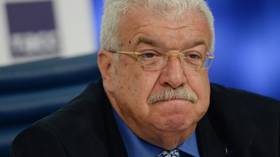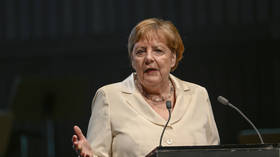Estonia braces for change as Russian exports move from home
Russia is renovating its railroads and sea ports - all part of plan to bypass transit countries when exporting energy products. That means neighbours like Estonia are looking to move from stable cashflows.
The port of Tallinn on Estonia's Baltic Sea coast is one of the country's main cash cows. It accounts for up to 8% of Estonia's budget revenues. But its days of glory may soon be over. As part of its efforts to diversify transit routes, Russia is building and renovating its own ports to compete with those of former Soviet Republics.
The construction of the Ust-Luga sea port – expected to be completed within 2 years – will do just that, according to Ain Kaljurand, Chairman of the Port of Tallinn
"It is clear that when the Masout oil terminal will be opened later this year then some of it will go to Ust-Luga. Its capacity will be about 8 million tonnes a year. This is 50% of what we shipped through our port last year. We will try to compensate this by sea to sea shipment."
Roughly 90 % of all cargo coming from Russia to the Tallinn port is delivered by rail. Those revenues will be affected as well according to Kaido Simmermann, Head of Estonian Railways.
“We will be hit – we know that we don know how to compensate.”
But Simmermann added that Estonian railroads will have the biggest budget in its history with the EU extending a helping hand.
“We have never had such a big investment plan than this year.75 percent is coming from the EU funds and 25 is our own money.”
It's not going to be business as usual – in part due to political reasons. Russia stopped sending its coal through Estonia when the Baltic nation took down a Soviet World War II memorial, the Bronze Soldier.
The controversial move sparked further talk about the need to find an alternative for oil and oil-product shipments.
Russia's commitment to developing its own sea ports as well as construction of reliable transit routes for its energy resources will inevitably affect its neighbors who used to enjoy steady transit revenues.
But at the end of the day, this looks likely to create a healthy competitive environment












